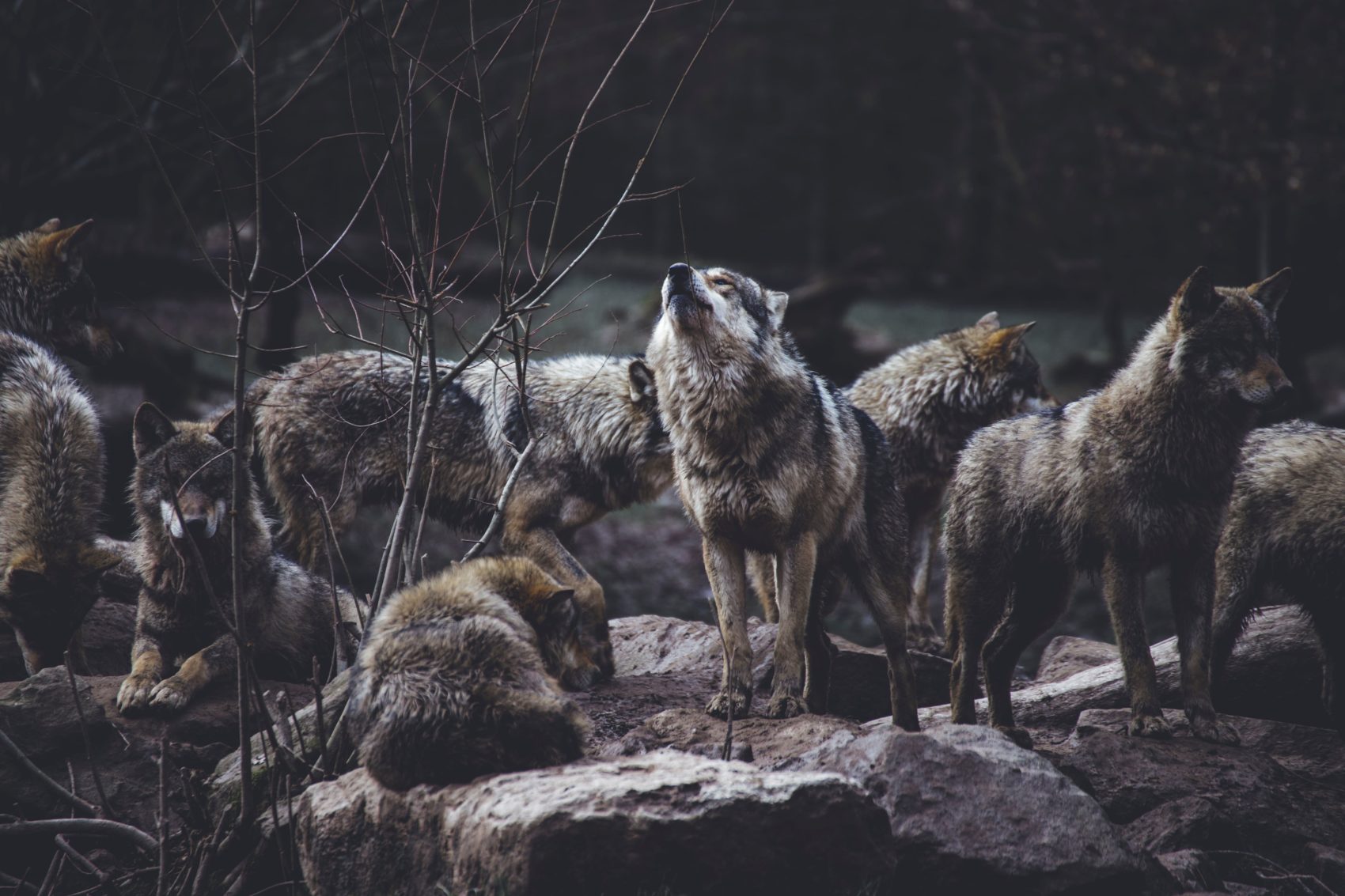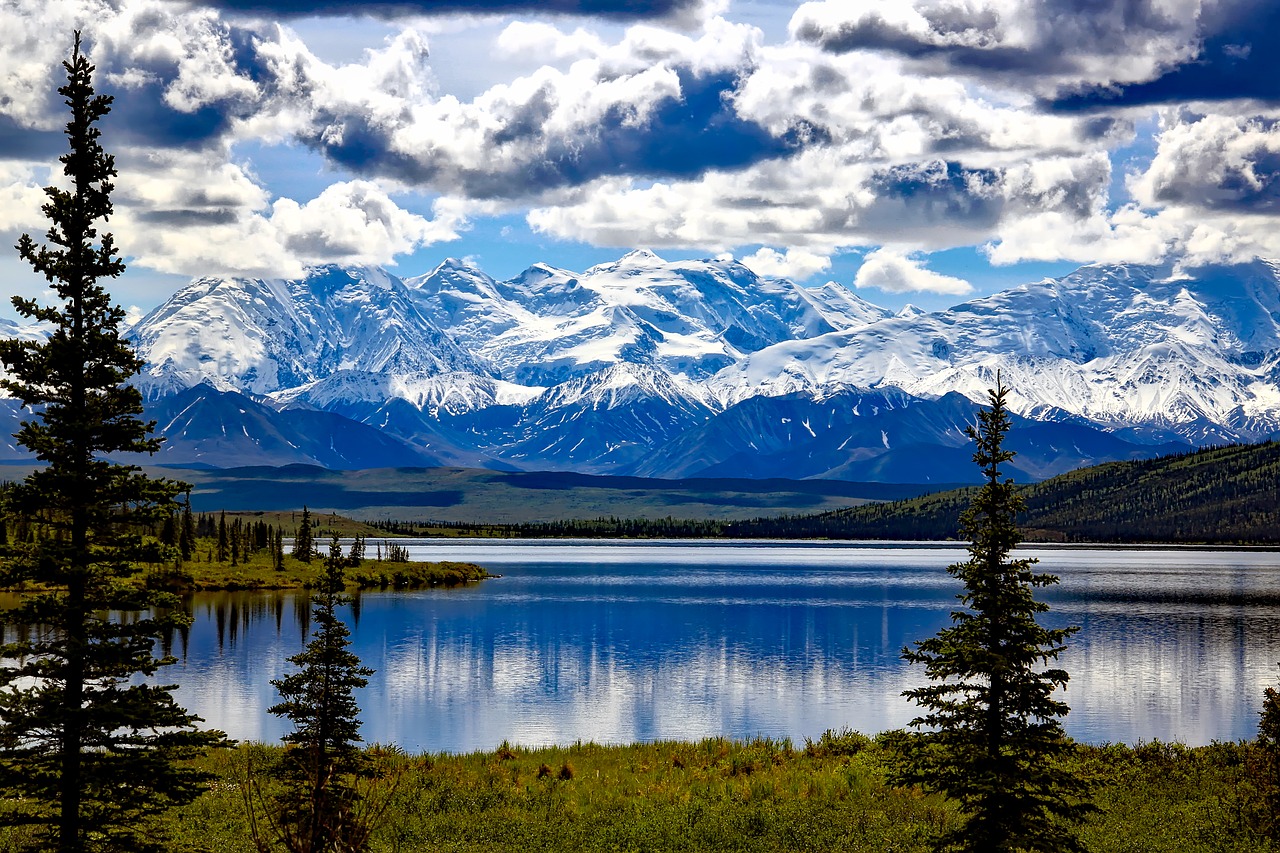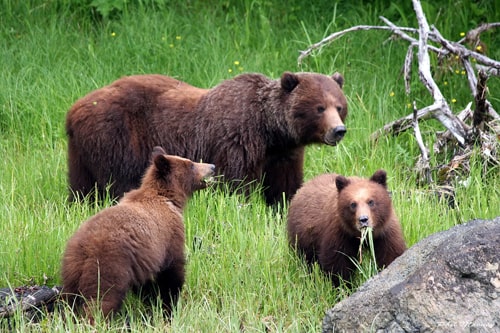
New rules established by the National Park Service (NPS) will allow for previously banned hunting and trapping techniques that will now be permitted in ten national preserves in Alaska. Although such methods were previously permitted on state lands, these new rules will permit hunters and trappers in Alaskan National Parks and nature preserves to now trap bears with human food as well as hunt mother bears and their cubs once they emerge from hibernation in the spring. With the opening of black bear season in October, even females settling down for hibernation can be targeted by hunters in land set aside for conservation such as Denali National Preserve and Gates of the Arctic National Preserve. Under the new rules, mother bears and their cubs will also be legal game once they emerge from hibernation in the spring.
The new regulations also lifted protections on wolves and their pups. Wolf hunting seasons opened on August 1st and it became legal in these ten national preserves for hunters to kill nursing mothers, even while they were nursing their wolf pups in their dens. According to the Park Services, these measures were made in order to more closely align with state regulations on hunting and trapping.
Prior to the rule changes, many of these controversial hunting and trapping activities were permitted for years across state wilderness areas and have been used for centuries by Alaska natives. But on lands managed by the National Park Service–including national preserves, national parks, and national monuments—federal law had prohibited the most controversial hunting techniques. However, on June 9th, 2020 the National Park Service stated that the United States government may no longer block hunters from using those methods in Alaska’s national preserves.

Scientists, wildlife managers, and wilderness advocates have criticized these moves, arguing that the changes would undermine NPS’s conservation mission and amounts to animal cruelty. The Park Service responded that these rule changes are meant to bring federal regulations more closely in line with state ones. Alaska’s management goals clearly contrast with what federal law establishes for lands overseen by the National Park Service. Alaskan nature preserves are deemed to be managed for conservation and for enjoyment by the American public in a way that will “leave them unimpaired” for future generations. In national preserves, on the other hand, hunting and fishing may be allowed only if it doesn’t threaten their natural resources.
Hunting and fishing are definitely not new to these Alaskan National preserves, however, critics contend that “what is new here is the inability of [the National Park Service] to manage national preserve lands in Alaska…as conservation areas rather than as ‘pastures’ to generate bushmeat for Alaskans,” says Sterling Miller, a retired bear research biologist from the Alaska Department of Fish and Game. “It’s degrading not just to predators but to moose, caribou, and deer, who are now increasingly valued only for the calories they produce,” Mr. Miller continued.

Federally protected national parks, preserves, forests, refuges, and monuments are by definition public lands held in trust by the federal government for the benefit of all Americans, whose taxes pay for their maintenance and management.
“The National Park Service was founded over a hundred years ago on the principle of caring for our nation’s treasures unimpaired for the benefit and enjoyment of future generations,” says Sally Jewell, who was secretary of the interior during the Obama administration. According to Ms. Jewell, the rule-change “is ill-advised and inconsistent with the tradition of subsistence and recreational hunters as conservationists, who appreciate the need to maintain nature’s balance.”
“Recent scientific studies have demonstrated the fundamental importance of wolves and bears in stabilizing ecosystems,” William Ripple, an Oregon State conservationist said. “A significant reduction of large carnivores can trigger a chain of events causing ecosystem degradation.”
Because of their place at the top of the food chain, predators like wolves and bears are keystone species that are crucial to the functioning, structure and, wellbeing of ecosystems. There is extensive research proving that removing predators can cause a cascade of downstream issues. The loss of keystone predators from an ecosystem is blamed for changes in everything from the populations of other plant and animal species to how diseases behave in ecosystems and how much carbon ecosystems absorb.
Despite the rule changes, Alaska Department of Fish and Game’s Eddie Grasser says: “Most people in Alaska are like me. We hunt based on…fair chase. I’ve never baited bears, I’ve never denned anything, and I’ve never shot a caribou swimming across the river.”
Can’t wait until the reintroduced wolf packs start munching people’s dogs and smoking overnight wilderness backpackers down in CA. Ignorance is bliss my high brow friends.
You’ll soon realize why properly regulated hunting is good and why its positive for top of the food chain predators to be afraid of humans.
Who created this news rules, Satan? Hunting is a hobby and pastime of degenerates. If the smart people ever take over I hope they push back HARD on hunting and trapping….it’s ABSURD that people still do this, especially when it’s not really for food.
That’s evil